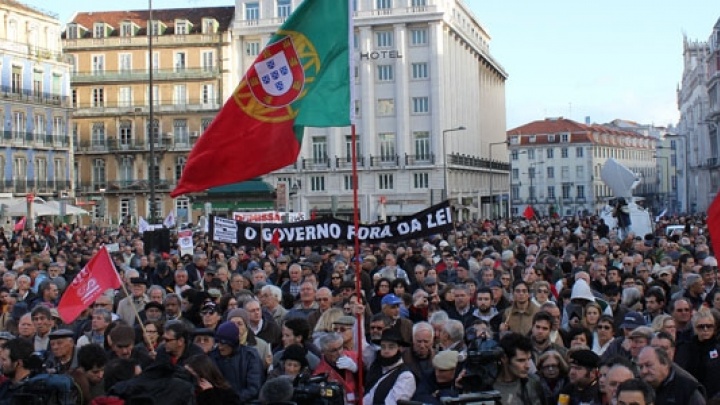In the aftermath of the informal European Council of February 12:
The PCP considers that the statements made by the Prime Minister, after the meeting of the European Council, constitute an unacceptable act of submission to the interests of big business and the directory of powers led by Germany.
Rather than proposing concrete measures to give immediate answer to the unbearable debt and the serious situation in many countries as a result of EU policies, the Prime Minister insists on a posture that, in line with the unfortunate statements by the President of the Republic, express a deplorable disrespect for the sovereign decisions of other peoples and countries and is deeply contrary to national interests.
The PCP reaffirms that the solution for the deep economic and social crisis that affects the majority of the member states of the European Union, can only lie in a rupture with the policies and guidelines, namely the Economic and Monetary Union, the Budgetary Treaty, economic governance and the Banking Union. A path that, in the case of Portugal, necessarily involves a rupture with the right-wing policy and a patriotic and left-wing policy which, among other basic choices, means the renegotiation of the debt in accordance with national interests; study and preparation of the country for its release from the domination of the Euro; a firm policy of commitment to domestic production; the strengthening of workers' and people’s purchasing power; public control of strategic sectors, namely the financial sector; defence and promotion of public services; combating fiscal injustice; a policy that affirms the primacy of the interests of the country and the defence of national sovereignty and independence.
The PCP stresses that, regardless of any developments that may arise in the negotiation process with the Greek Government, the European Union confirms a policy of scandalous social insensitivity, a profound disregard for democracy and expression of legitimate feelings of rejection of European Union policies, concealing the real causes of the deep economic and social crisis affecting the majority of EU countries, and insisting on deepening the Economic and Monetary Union and the instruments, like the Budgetary Treaty, Economic Governance and the Banking Union, which aim to perpetuate policies that are at the root of the crisis.
The PCP considers that measures included in the so-called "war on terrorism" that, under the excuse of the Paris attacks, are now announced by the European Council, conceal a necessary approach to the root causes of terrorism, namely the US, NATO and European Union policy of instigation of divisions and conflicts, of interventionism in various regions of the world and direct or indirect support to terrorist groups and organisations. The measures now identified confirm a securitary vision, offending freedoms and guarantees of citizens, reinforcing the concept of a "fortress Europe" subjacent to the Schengen Treaty and an even greater interventionism in the regions of the Middle East, North Africa, the Sahel and the Balkans .
The PCP, registering the signing of a new cease-fire agreement in Ukraine, deplores the approach of the European Council which confirms the line of unconditional support to the KIEV regime resulting from a coup and objective complicity with the crimes of political persecution, repression and war committed against its own people. The statements made following the meeting of the European Council confirm, despite contradictions, the alignment of the European Union with the US and NATO strategy of instrumentalization of the Ukrainian conflict - whose causes lie in the foreign interference in the internal affairs of Ukraine - to increase to higher levels the militarization of Eastern Europe and the advancement of NATO to the borders of the Russian Federation, in a provocative escalation of unpredictable consequences.


